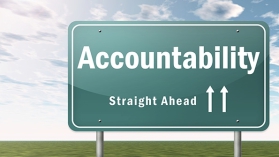Blog
Last week I posted a blog on “How to Coach Salespeople” (read it here) and it prompted a lot of questions on problems that managers run into when coaching their team. As a follow up, here is a look at the 3 common coaching mistakes and how to avoid them.
- Don’t change your approach to coaching. Stick to your system. Coaches who change how they work with their people cause confusion. If you don’t have a system for coaching, I would suggest starting with a simple system like FIS. FIS stands for…
F-Feedback – Listen to your salesperson and give feedback on what you heard
I – Instruction – Explain what you think the problem is and ask questions to help the salesperson discover why it happened
S – Specific – Give a specific solution, and when possible, role-play that conversation with your salesperson.
- Don’t make it a personal attack. Salespeople need to “step out of their head” and look at the problem objectively. A good coach helps them do that. Explore the situation and discuss tactics and strategies.
- Don’t forget to follow up. Make a note of when the salesperson will meet with a prospect again and ask about the meeting. If you are discussing something like cold calls, remember to circle back with your salesperson after they make their calls and ask if they noticed any difference in the calls this time.
With time, you’ll eventually work out the bugs and get quick and efficient with coaching!
How to Coach Salespeople
A good Sales Manager is a coach to the Sales Team. You can even use the synonym of “Mentor” in place of “Coach.” Keeping this in mind, here are a few helpful tips on coaching others.
First remember that Coaching is an on-going effort. It never stops. You are never “done” coaching someone. Every day that your salespeople are meeting with prospects, they are running into resistance and mental push-back. Over time, this builds in the mind of a salesperson. Coaching is the “release valve” that clears out all the negativity.
One-on-one coaching is the best. Group coaching has value and is a time saver for “big picture” ideas, but working with someone individually is powerful and impactful. Think of it as the difference between carpet-bombing versus a surgical strike. Carve time out for one-on-one coaching with each person on your sales team.
Effective coaching has 3 key elements. It must provide feedback, instruction and be specific. For example, I was coaching a salesperson (we’ll call him John) recently who struggled with connecting to a new prospect.
- Feedback - After asking some questions and listening, I provided feedback. I mentioned how John’s communication style sounded like the opposite of the prospect. I reminded John that it is the job of the Salesperson to adapt to the prospect, not the other way around.
- Instruction – Instruction came in the form of a review of the DISC personality profile. Through the questions I asked, John was able to discover the communication style of the prospect. We then reviewed our handy DISC cheat-sheet to determine the best ways to adapt and connect to the prospect going forward.
- Specific – We role-played a quick conversation that John can start with when he speaks with the prospect again. We also practiced a good “agreement” so that he can close the prospect at the end of the meeting. More on agreements in my previous blog “avoid the end-of-game Hail Mary Pass” here.He left the conversation upbeat and excited to get back in front of the prospect.
Coaching is time consuming, but over time a Sales Manager can become quick and efficient at it. When executed well, coaching others can be the best investment you can make in your people!
Time Management for Sales Managers
Many of us saw the TV show “Mad Men” about an ad agency in the 50s and 60s. In the show, there were multiple examples of managers closing their office door and taking a nap in the afternoon while their assistant typed away just outside the office. How far we have come! Today, most managers have 60 to 70 hours’ worth of work to try and cram into a work week. Not only is there no time for naps, many of us have no assistants, and are working from home.
It's a fact, Managers and Owners today are busier than ever. I'm always asked for the best-case-practices for time management…specifically, where to spend time on your sales team that generates the biggest return. Here's your answer...
50% - Coaching
15% - Accountability/Measuring Performance
10% - Motivating Sales People
5% - Recruiting
5% - Crisis Management
1% - Planning/Managing Compensation
1% - Organization/Reorganization
3% - Business Product Strategy
5% - Direct Selling
5% - Internal Company Issues
Figure out how many total hours you are working per week, multiply by the percentage above, and you'll have a good idea of where to spend your time. Let me explain a few definitions.
Coaching - This includes training, role-play, ride-a longs, pre-call strategy, post-call debrief
Accountability/Measuring - This is where the CRM meets the road. Also includes the weekly one-on-one meeting you will have with every salesperson
Motivating - This will be things like your daily morning huddle and other opportunities to help the team keep their head straight. Remember, your salespeople are getting beat up every day. You have to pick them up and put them back together on a regular basis
Recruiting - Constantly running want ads and networking. You need to constantly be meeting/interviewing. Automate as much as possible. More on this in 2 weeks
Crisis Management - It's a fact of life and will take time every week
Planning/Compensation - More on this in next week's message
Organization/Reorganization - Get the right people in front of the right people
Strategy - Every week you need to step back & take a 30,000 foot view of your business, market and industry. Read business journals, trade organization insights and more. Maintain a network of experts and piers that you can tap into.
Direct Selling - Ideally managers and owners would not do this, but in today's world there are certain situations and clients that require it.
Internal Company Issues – Welcome to Management!
What's really in your Sales Pipeline?
Projecting future sales can be tricky, frustrating and seemingly impossible. Owners and managers depend on sales projections for everything from future cash flow to inventory management. Project too low and you'll run out of inventory. Project too high and you may get behind on bills or not be able to make payroll.
Most of the time, I see salespeople either sandbagging projections (down-playing what they expect to sell in order to bring down goals to an easy-to-hit level) or making pie-in-the-sky projections that are not based in reality. To correct this, I suggest separating your pipeline into 5 specifically defined categories, which are...
- Beginning – Contacts that have not yet been scheduled
- Suspect – First meeting has been scheduled but not yet held
- Prospect – First meeting has been held and is a real opportunity
- Qualified Lead – Opportunity has been thoroughly qualified
- Closable Opportunity – Opportunity is Closable
As opportunities work through the pipeline, the funnel will get smaller in terms of number of opportunities, but the closing percentages will increase. If you have 100 prospects in the Beginning phase, you may only see 20 to 30 turn into Suspects. From the pool of Suspects, maybe half will actually be a fit for you and become real Prospects. After having a first meeting, you will have a good understanding of what your Prospect needs. Further investigation will uncover the Decision Making Process and Budget. With those two pieces of information, you can now determine if this is a Qualified Lead. A great percentage of these should turn into Closable Opportunities. Once you have a commitment to making a decision from your Qualified Lead, you now have a Closable Opportunity. High performing Salespeople are closing 80% to 90% of Closable Opportunities.
As time goes by, you'll start to get consistent closing percentages for each category for each salesperson. Eventually you'll have a very solid sales projection. However, if you have a feeling that the problem is more than defining your pipeline better, than click here for a free Sales Force Grader. In addition, 92% of the companies whose sales force we evaluate have ineffective, incomplete, non-existent sales processes, or sales processes that their people don't follow. Click here for a free grade of your Sales Process.
For More Success, Track More Than Sales
It's easy to track sales. At the end of the week you total up what everyone sold and you'll find a top producer, several in the middle, and one or more Salespeople at the bottom. So how do we get the Salespeople at the bottom to perform more like the ones at the top?
While experience, training and industry contacts go a long way to building sales, one thing managers can do is track more than sales.
It stands to reason that your top producers, at one time, did the behaviors that got them to the top. Good managers know what those behaviors are and they hold their people accountable to executing those behaviors. A few behaviors that lead to success include...
- Number of dials per day
- Number of networking events per week/month
- Number of referrals asked for per day
- Number of industry events attended per month
- Number of Centers-of-Influence meetings per week
- Number of Speaking Engagements given per month
When you think about it, tracking sales is a look at the results of past behaviors. When you track behaviors each day, you'll have a good idea of what is coming in the future. It's hard to imagine a salesperson not growing if they are making 40 calls per day, attending 4 or 5 networking events per month, asking for a referral every day from current customers, attending and participating in industry events where they will start to develop a reputation as a go-to person, meeting with two Centers-of-Influence every week who could refer them business and finally start speaking in front of groups of prospects through different trade associations and professional organizations. Even the worst salesperson in the world will see an increase if they do these behaviors on a regular basis.
The bottom line is, meet with your people every week. I call it a WOOOM (weekly one-on-one meeting) and hold them accountable to doing all of the behaviors that will make them successful. If they complain that they don't have time (or more likely don't want to work that much), be sure to have a replacement in the pipeline for them. And be sure to explain to the new hire that executing the weekly behaviors are a condition of employment.
Salesperson Compensation: Best Case Practices
Far too often, the best sale a new salesperson makes is in convincing the new employer to pay a large salary. This can be a huge mistake. A question I'm asked on a regular basis is for best-case-practices regarding salesperson compensation. The answer is simple. Let the salesperson pick their compensation.
Start with a sliding scale and let the salesperson work into the level that fits their risk/reward level. Here is an example of how you might compenate a salesperson based on $1 million dollars in sales revenue (you can adapt the numbers to fit your world)...
Plan Base Commission Total
A $50k + 3% $80k
B $40k + 10% $140k
C $30k + 20% $230k
D $ 0 30% $300k
Notice that as the base salary lowers, the compensation goes up. If the salesperson wants to make the most money possible, then they must be willing to take the risk. If they don't have enough confidence in their own ability to sell, then you as the company owner/manager should take a larger share of what they bring in. It's only fair that you receive more if you are paying more up-front without any guarantee of success. For a look at how much a bad sales hire costs, click here for a free estimate of the true cost of your sales ghosts.
Where to find good Salespeople
The secret to business success is to hire great people. Most business owners and managers do a great job with hiring. There usually is only one department with a turnover problem (either too much or too little) and that is the Sales Department. A bad hire in the sales department can cost a lot of time, money and resources. For an idea of how much a bad sales hire costs, click here to use a free Sales Hiring Mistake Calculator. So where do you find great Salespeople?
The answer is not easy. Good Salespeople are usually making a lot of money where they are. So, just like a good fisherman, you need to find a good fishing hole to cast in, and you have to cast every day. Start with the top 3 places to advertise on the internet, which are Indeed, Craig’s List and Linked-in. You may be thinking Craig’s list is not for hiring salespeople, but you would be surprised how many business owners and managers have found good people there. Also, Linked-in is a great place to look for salespeople, but you need to be consistent. Speaking of consistency, Indeed is working well for businesses who advertise every day, and every week and every month of the year. The key is to change up your ad every week so that it doesn't get stale and drop to the bottom of the list.
In addition to the internet, you can advertise in Trade Magazines. Top performers at you competition will be reading these magazines. What could be better than stealing talent from the competition? They already have industry knowledge, are working with people you want to be working with, and know your competitor inside and out. Plus, while your new hire is building business for you, your competition is struggling to fill a hole.
Many people ask about Recruiters. I say, if they bring you someone great, then go for it! Companies turn to Recruiters when they are unable to attract enough candidates or when they lack the time and resources to filter out undesirable candidates. The problem is Recruiters usually send you all the warm bodies they can, but there is no filter to determine how good that person would be at your specific type of sales. If you do decide to use a recruiter, be sure to use one that specializes in sales candidates.
In the end, you need to be a "heat seeking missile" for new sales talent. It needs to be something you do EVERYDAY, not just when someone leaves. Also, you need to have a well-thought-out onboarding process. Want to know how good your sales department is? Click here for a free Sales Force Grader. You may also want to test your onboarding process. Click here for a free Sales Process Grader.
Hold Salespeople Accountable
A business owner asked me the other day if I have any idea why he has trouble keeping good salespeople. When I asked how he manages their activity, he said he has a CRM that he checks from time to time and is always ready to answer any questions they may have. Also, they try to get together at least once per month. Hmmmm.
The three main reasons salespeople fail are...
- Can't do the job
- Won't do the job
- Not held accountable
The first two reasons need to be weeded out in the hiring process. Maybe they lack desire and commitment. Maybe they don't have the skills or "Sales DNA" needed for the job. It's our responsibility to find this out before we hire. There are many Sales Assessments to choose from, I like to use Objective Management Group. Dave Kurlan at OMG has developed a great product. Click here for a free trial. Try it on your next sales applicant and see for yourself.
The last reason is something we can control. Or said differently, something we are responsible for. Salespeople must be held accountable.
Think about the nature of salespeople. They want to earn the most amount of money for the least amount of work. That's why they are in sales. The DREAM is to bring in that "giant" account and spend the rest of the time golfing. The REALITY is that selling is hard work and salespeople need to work every day. Left on their own, salespeople will fall into the trap of providing "great service" to existing clients at the expense of prospecting for new business. The job of the sales manager is to keep them on track. (Yes great service is important, but it is no excuse for not bringing in new business).
Salespeople need a plan for every day. Sales managers need to meet with and review the plan for the day, each and every day! If a salesperson has the ability and willingness to do what it takes, and fails, then we need to take a look at what we as managers missed. As Jim Collins said in "Good to Great," you need to "get the right people on the bus, the wrong people off the bus, and the right people in the right seats." Once that is done, it is the Manager's job to get the Bus going in the right direction, and make sure everyone is on the bus, every day.
BOTTOM LINE: Check in with your salespeople every day.
Discussing Money
A tuff subject for many salespeople to talk about is money. For some reason, salespeople build up all sorts of "head trash" around the concept of money. I remember the story of a CFO who was laid off
from a corporate job. After about 18 months of unemployment, he realized that he was overqualified for most of the jobs that he was interviewing for. He decided that at the next interview, he would
offer to work on projects as an independent consultant.
His next interview went like all the others. The CEO recognized his expertise, but didn't have room on the payroll for him. The CFO asked "do you have a project I could work on independently?" The
CEO said yes and described the job. The CFO thought about it and reasoned that he could get the project done in one week. When the subject of cost came up, he started doing the math in his head. He
had made about $150,000 per year in his previous job, which was roughly $3,000 per week. He decided to offer $2,500 to be sure that he would not price himself out of the business. The CEO, who had
been negotiating in business his whole life, said he would pay $1,900. The CFO agreed to the sum and, with that deal, created his "consultant" business.
This story gives several examples of money issues. First, the CFO felt he needed to discount his price, but the only person who knew it was a discount was the CFO. Upon hearing the initial offer, the
CEO did what he always does, he offered a lower price. Since the CFO had no other prospects, he was all too eager for the business and jumped at the first counter offer.
The real questions to ask is why did the CFO feel the need to discount in the first place? Did he feel that he didn't offer enough value? Imagine if your salespeople have the same "head trash" when
they go on sales calls. How much is it costing your business each year?
One of the first things we do at Continental Sales Training before working with a company is to run an evaluation on the entire sales force. One of the many thing we look for is Money Weakness. Money
Weakness is something that can be discovered, measured and worked on. And it is one of the best ways to improve sales in a company.
Play like Michael Jordan
Today I'll start with a sports story. You don't need to know much about sports or any players to get the value of this post. Arguably one of the best basketball players of all time is Michael
Jordan. And one of his best ever performances was while playing for the Chicago Bulls in a playoff game against the Utah Jazz. The Jazz took an early 16 point lead and many people felt there was no
way Chicago could recover from this deficit. But to compound the effects of the Jazz lead, Michael Jordan had been diagnosed with a very bad stomach virus. Just by watching the game, one could see
how sick and tired Michael was feeling that night. And at a time when many people would think "we're so far behind, and I'm so sick and tired, and I really should rest up for the next game," Michael
stayed in the game and finished with 38 points and played for 44 minutes.
The way this relates to sales is simple. There are days we don't feel 100%. There are activities like networking, prospecting and cold calling that we don't like to do. What separates successful
sales people from all the others is their commitment to getting the job done. No excuses. No substitutions. For example, if you need to build more business and have decided that networking is the way
to do it, then stay focused and get it done. A good idea is to set a simple goal. Let's say you are going to a networking event, set a goal of meeting ten new people and collecting their cards before
you leave. You'll be motivated to get in and out fast because you'll have the end in sight. It's the same thing Michael Jordan did in the game against the Utah Jazz. He simply focused on the goal of
winning the game, and for 44 minutes he put everything he had into it. I'm sure he was wiped out afterwards, but he probably offset that feeling with his accomplishment for the night. There are many
people who love going to networking events, but they don't end up with much business from them. There are others who don't enjoy networking, but are very effective at it because they focus on their
goal, get it and out fast, and move on. You can use this same concept for cold calling, prospecting or many other areas of sales.
You don't have to be "on" all the time. Just a few minutes at the right time is all it takes. You can do that!
The Money Concept
One of the biggest concerns that many sales people and business owners have is how to increase revenue. There are many different ways to grow your revenue, but before you start down that road, check
your Money Concept.
The Money Concept is your own perception of money. One problem many sales people have is not being comfortable talking about money. Think back to when you were a kid and you asked an adult how much
money they made. If your Mom found out she would probably have been mortified and would have promptly explained that it's not polite to talk about money. Fast forward to today and here you are
in a business or profession that requires you to talk about money. But every time you do, that record of Mom is playing in the back of your head.
Another problem is that some people think that a small amount of money is a lot of money. If you think $50 is a lot of money, and your product or service costs $500, your Money Concept will be
at odds. Salespeople with this Money Concept issue find it hard to raise their prices and many times will feel like they are forced to take a price cut in order to win business.
So, before you begin your plan to increase revenue, make sure the "records" that are playing in your head are turned off. Second, work on your perception of "a lot" of money until you feel like what
you're selling is a real "bargain." It will help you to hold your prices and build your revenue!
The Value of Cold Calling
Maybe you make cold calls and maybe you don't. Here is why I recommend you make cold calls every day, no matter what.
Have you ever noticed that, in Montana at least, as soon as the farmers can, they start irrigating? I mean, as soon as they can run the sprinklers without having freezing issues, they start. Now, why
would you start irrigating as soon as the end of April and the beginning of May? The grass is spring green isn't it? The reason is that farmers know that eventually a dry spell will come and they are
trying to get as much moisture in the ground as possible. That means starting early and not stopping.
In business, we can all get so busy working in the business that we forget to work on the business. You bring in a new piece of business, now you need to service it. To do it right, servicing takes
time. And usually the first thing cut from the schedule is prospecting for new business. So we end up on this roller coaster ride. New business comes in, we service it and stop prospecting. The
business ends, no new business is in the pipeline and so we start up again with prospecting.
So the first issue with not cold calling everyday is the Roller Coaster effect. The second is what I call "butterflies in the stomach." That means you haven't made cold calls in a long time, you are
out of practice, and now you're nervous. So your first few calls don't go well because you are nervous. And since you are out of practice, it takes a while to get in the zone. But you finally
get there, bring in a new piece of business, and do what? That's right, stop the prospecting, and service the new business. And again, you fall out of practice, shut down the pipeline and begin
another Roller Coaster ride.
I would rather see someone pick up the phone and make 2 calls a day than wait to make 10 calls on an "office day." First, the "office day" always fills up with "important work" to get done and the
calls never happen. Now it's 2 weeks and you haven't made any calls, then some emergency comes up and you're suddenly at 3 weeks. Instead, just make 2 calls a day. If you miss a day over the course
of a month, it won't hurt you much, and you can easily make up those 2 calls at anytime. You will constantly be filling your pipeline and soon you will stop the Roller Coaster ride.
The second, and just as important, benefit of calling everyday is that you will start to overcome the "butterflies" in your stomach. Someone who has picked up the phone everyday for a month
will have faced and overcome the "nervousness" dozens of times and eventually will be that much more productive on each call.
Strategic Account Management
A very distraught salesperson came into my office the other day. She had a rough month to say the least. Her contact at her largest account is leaving and the replacement is someone in the
company she has never met before. As part of the transition, the replacement is calling in all of the salesperson's competition to get proposals and competitive quotes. A 7 year relationship with
that company is down the drain, and she has to start back at square one.
This happens every day. Sometimes it is downsizing, sometimes good people leave for better opportunities. If your contact at your largest account is your only contact at that account, you've got a
problem. All of those favors, dinners, concert tickets and gifts, not to mention all of the extra time that you put into building a relationship with that client, could go away in the blink of an
eye.
Strategic Account Management includes, among other things, getting "three wide and three deep." Know who works with your contact. Ask who would cover for your contact if they should become sick, or
need to take a leave. This is the most likely replacement. Get to know them. Also, get to know your contact's boss, and the boss' boss. What you want to have is the boss of your new
contact recommending that your business with them stay the same, or increase! Be sure you have a system in place for your Strategic Account Management.
Avoid the end-of-game "Hail Mary" pass
The other day I spoke with a Financial Planner who manages a good sized portfolio for wealthy clients. Through a referral he was given an opportunity to meet with a group of doctors who have put
together a charitable foundation. The assets of the foundation had grown in size and are now too big for the members to manage themselves. They need professional help.
This planner did his best to get all of the information from his contact and put together a very nice presentation. He met with the members at a "cattle call" meeting where he was one of three
people presenting to the group (via conference call). He felt good about the presentation and was sure he would hear back from them sometime soon. A few weeks went by and there was no
word. He contacted his point person and asked what was going on. "You did really well" he was told. The group had narrowed it down to just him and another company. "It will probably just come
down to fees" he was told.
It was at this point that the Financial Planner came to me and asked "what can I do to close this business?" I told him about the coach who managed a youth football league. It was the fourth
quarter with one minute left to play and his team was down by 14 points. The coach asked "what can I do to win the game?" The answer for both scenarios is, there is a lot you can do, but you have to
go back and do it in the first, second and third quarters.
Don't wait until the fourth quarter to start worrying about how you'll close a piece of business. Have a system in place that starts from the very first introduction. Make sure that system is
learnable, repeatable and proven. You'll avoid the end-of-game "Hail Marry" pass every time.
Margin Protection
With the economy as tight as it is, more and more businesses are feeling pressure to reduce prices. A local business owner was complaining that every time his competition drops their price to get
business, it puts more pressure on him. In fact, a favorite tactic of many prospects is to get several competing bids and use the lowest bid to leverage a lower price from the others.
Margin protection is a huge problem for many businesses. Unfortunately, many salespeople feel that dropping price is the only way to consistently, reliably, and predictably bring in business. In
fact, some operators even feel pressure to bid jobs at cost, just to keep their workers on payroll. It's a vicious circle that can consume a business.
Two questions to ask yourself are...
1. How do I get into these situations?
2. How do I avoid it?
First, if you find yourself under pressure to reduce margin, your prospect may see you as a commodity. After all, one nail is as good as another, right? So your product or service (although you try
very hard to convince them otherwise) looks just like your competitor's product or service to the prospect. However, the reality is that people DO pay more for the same thing all the time. For
example, you may pay 69 cents for a bag of lettuce, or $3, the difference is one is a head of lettuce, the other is a bag of "salad." But those are packaged and processed differently you say? You’re
right, so why doesn't your prospect see your product or service with that same amount of difference?
Second, don't put yourself in this position in the first place. Rather than waiting for prospects to ask for a proposal, go out and dig up new prospects that have a need for what you offer, but
haven't yet acted on that need. This way you'll be the first in the door. And when you use a proven system that takes your prospect from introduction to close, the competition never comes into
play. Margins are protected, the bottom line is bigger and you sleep much better at night!
Don't reach in your customer's pocket
The other day I was on the phone with a "professional services" person who decided that what I was looking for was not financially worthwhile. Without asking, he reached in my pocket, looked in my
wallet, and decided that I didn't want to spend the money. Well, he didn't physically do this (we were on the phone), but he did it mentally. What's ironic is, I've paid for this service
many times in the past, at a price that was twice what he was asking. Unfortunately for him, we didn't do business and I moved on to another provider.
In the book "The Millionaire Next Door" researchers found that the most common vehicle driven by millionaires was the Ford -150 pickup. This is not what they expected. The conventional wisdom was
that wealthy people all drove something along the lines of a foreign sport car.
The lesson for sales people is that your customers have the right to spend their money how they see fit. It's your job to help educate them about your product and service, but in the end it's their
decision. Next time you are face to face with a client that doesn't seem to "fit the bill," stop yourself, stick to your sales system and don't skip any steps. You'll avoid losing business, and may
even surprise yourself with a new piece of business.
Location, Location, Location
It' an expression we've all heard before, Real Estate is all about Location, Location, Location. But that same bit of wisdom can be applied to sales as well.
The other day I spoke with a salesperson who was making cold calls (good for her) and she was frustrate because her efforts yielded very little results. After hearing her results, I told her that,
for cold calls, she was actually doing very well. The problem was her expectation for cold calls was too high. I'm all for going into cold calls, or anything else, with the idea that you're going to
shoot for the Moon. But the reality is that cold calls are probably the least productive of all prospecting techniques in terms of time invested.
I'm not saying that we should stop making cold calls, just the opposite. The point is know your "Location" in the sales process. Cold Calls are something you work into your day, get good at
executing, and consistently keep doing. Eventually you will reach a decision maker that you would not have reached otherwise and they will need your product/service and agree to see you. Your
location in the sales process is so far at the beginning that you have a very long way to go.
A referral starts a little bit farther down the sales process. A repeat customer is certainly closer to the end of the process than the beginning. Networking can start you off in a variety of
different place along the sales cycle. Marketing can bring in warm leads, or totally miss the mark. It's up to you to realize where you are in the sales process. For a customer who may stay with you
for years and bring in a huge revenue stream, realize that you have to put in the time and effort upfront, then reap the rewards. Just like a Farmer in the Spring, he doesn't get frustrated when he
looks at a bare field. He knows where he is in the farming process and gets to work. He knows his "location" in the farming process. Do the same with your sales process, keep planting those seeds,
know your location, and you'll soon have a large "sale" to harvest.
Learn When to Back Off
The other day we were looking for my daughter's iPad and couldn't seem to find it anywhere. I spent a good hour looking in all the usual places but it never turned up. Rather than spend even more
time looking in the "unusual" places, I decided that it will turn up when it's good and ready. One week later, it did.
So how does that apply to sales? Think about all the times you've met someone who was a good fit for your product or service and the two of you started doing business almost immediately. Now think of
the times where you've spent hours and hours with prospects that seem to go nowhere. If we are honest with ourselves, we'll find that the people who take all the time and do nothing, really don't
sound like the prospects who are ready to go.
When you use a proven sales system, and you have good success with it, you can always know when the time is not right. You follow your process, ask the right questions, and don't get the response you
are looking for. Time to move on. Let this prospect simmer for a while, then revisit them in the future (6 weeks, 6 months, or whatever is appropriate for you).
Sometimes your prospect may have a problem you can fix, have the money to fix it and be the decision maker, yet they don't want to do business. Trust your gut feeling and know that the timing may not
be right. Reasons that the time may not be right include pending litigation, death in the family, problems with employees and a laundry list of other things that your prospect just doesn't want to
share with you. If your product or service is new to the area or this industry, then maybe the prospect just wants to be sure you'll be around in six months before committing to work with you.
If this is the case, then take a breath, back off and go negative. Say things like "for some reason, I get the feeling that now is just not a good time for us to be talking. Would it make any sense
to pause here and revisit this issue in six months?" (This assumes of course you haven't done a proposal yet). The prospect may appreciate the "lack of pressure" and you'll be in a "more
consultative" light.
Pushing hard at the wrong time will just alienate your prospect. Good swimmers don't fight the tide, and neither should you. Trust your gut, and as long as you haven't made a proposal, back off and
try again later.
Don't Edit Your Prospect's Picture
Salespeople who have been selling for several years have a unique problem that Rookie salespeople don't have. They tend to "edit their prospect's picture." By this I mean every prospect has a picture
in mind of what she wants, or at least she believes she wants. When the salesperson does not deliver on that "picture" it is difficult to make a sale.
The problem experienced salespeople face is that they have seen so many prospects with the same problem that they start to offer solutions to problems that the prospect has yet to discover on their
own. Remember, sales is a discovery process FOR THE PROSPECT! Just because you have seen this situation before and know exactly how to solve your customer's problem, doesn't mean the customer is on
board. You've got to let the process play out, through good questioning, so that the prospect discovers what they want. The prospect is painting the picture in her head of what she wants and a well
trained salesperson knows just how to do that.
In the Continental Sales Training system, we spend a lot of time working on the right questions to ask so that the prospect discovers that your product or service is the solution to the problem,
rather than "telling" her what she should do with a typical Dog-and-Pony show.






















